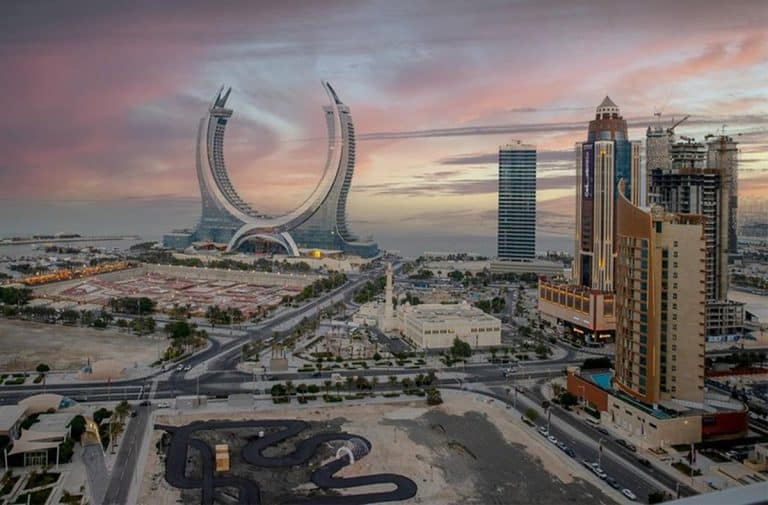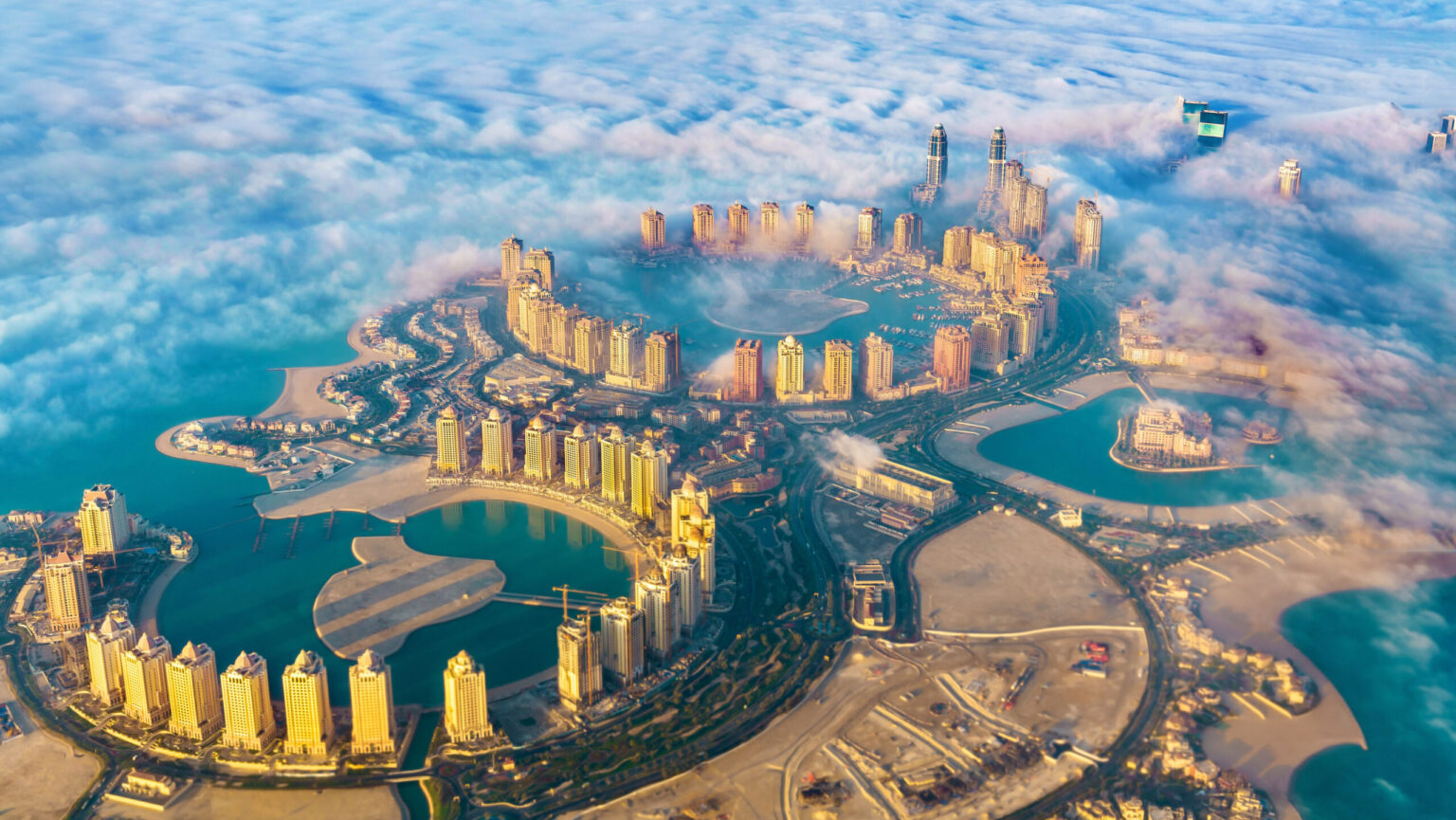Qatar, one of the fastest-growing economies in the Middle East, is redefining its global identity with a powerful vision to become a premier hub for foreign investment. Over the past decade, this Gulf nation has transformed from being heavily dependent on oil and gas to creating a diversified, innovation-driven economy that welcomes investors from all corners of the world. The country’s leadership has laid out ambitious national strategies, economic reforms, and world-class infrastructure that continue to position Qatar as an attractive destination for global businesses.
As global competition for foreign capital intensifies, Qatar stands out with its stable political environment, investor-friendly regulations, and forward-looking policies. The nation’s commitment to sustainable growth and innovation-driven industries reflects a clear message: Qatar is open for business and ready to lead the next wave of economic transformation.
Economic Vision 2030: The Foundation of Qatar’s Investment Appeal
At the heart of Qatar’s success story lies the Qatar National Vision 2030, a comprehensive blueprint designed to transform the nation into an advanced, self-sustaining economy. This vision emphasizes human development, economic diversification, environmental sustainability, and social progress. By focusing on these pillars, Qatar is building a future that is not only economically strong but also inclusive and sustainable.
Under this vision, the government is reducing dependence on hydrocarbons and investing heavily in sectors such as manufacturing, tourism, logistics, education, and digital technology. The goal is to create a balanced and resilient economy capable of thriving in the post-oil era. Foreign investors find this roadmap highly attractive because it guarantees long-term stability, transparency, and opportunities across diverse industries.
Investor-Friendly Legal and Regulatory Framework
One of Qatar’s greatest strengths lies in its progressive legal and regulatory environment. The government has implemented a series of reforms designed to make it easier for foreign investors to enter, operate, and thrive in the Qatari market.
The Foreign Investment Law allows up to 100% foreign ownership in various sectors, eliminating the need for a local partner in many industries. This reform alone has significantly boosted investor confidence and opened the door for global firms to establish fully owned subsidiaries in Qatar.
In addition, the Qatar Financial Centre (QFC) and the Qatar Free Zones Authority (QFZA) provide competitive tax regimes, simplified licensing procedures, and world-class facilities for international companies. These zones are structured to support different business models from finance and technology to manufacturing and logistics offering investors unparalleled flexibility and access to regional markets.

Strategic Geographical Location and Connectivity
Qatar’s geographical location gives it a unique advantage as a gateway between East and West. Positioned at the crossroads of global trade routes, Qatar offers easy access to markets across Asia, Africa, and Europe.
The Hamad International Airport, recognized as one of the best in the world, connects Qatar to over 150 destinations globally. Likewise, Hamad Port, one of the most advanced seaports in the region, serves as a critical logistics hub supporting global trade.
This superior connectivity allows businesses to operate efficiently and tap into neighboring markets with ease. For international companies seeking to expand their footprint in the Middle East and beyond, Qatar serves as the ideal strategic base.
World-Class Infrastructure and Smart Cities
Infrastructure development has been a central pillar of Qatar’s strategy for attracting foreign investment. Over the past decade, the country has invested billions in building modern transportation systems, advanced communication networks, and smart urban centers.
Projects such as Lusail City, Qatar’s first sustainable smart city, demonstrate the nation’s commitment to innovation and technology-driven urban development. Lusail integrates cutting-edge digital systems, eco-friendly architecture, and intelligent energy management creating a model city of the future.
Similarly, the successful hosting of the FIFA World Cup 2022 showcased Qatar’s capability to execute world-class infrastructure projects. The event left behind an impressive legacy of hotels, stadiums, roads, and metro systems that continue to benefit residents and investors alike.
These infrastructural advancements make Qatar one of the most attractive and livable destinations for expatriates and international businesses.
Tax Benefits and Financial Incentives
Qatar’s taxation policies are among the most competitive in the world. The country imposes no personal income tax, no property tax, and offers zero customs duties on the import of machinery and raw materials in certain industries. Corporate tax rates remain low, making the business environment even more appealing.
The Qatar Free Zones Authority goes a step further by providing incentives such as 100% foreign ownership, full profit repatriation, and 10-year tax holidays for eligible companies. These financial advantages create an ideal ecosystem for startups, SMEs, and multinational corporations to invest and grow sustainably.
Moreover, the Qatari government has been proactive in supporting innovation and entrepreneurship through initiatives like Qatar Development Bank (QDB) and Qatar Science and Technology Park (QSTP), which offer funding, mentorship, and incubation facilities to new ventures.
Focus on Economic Diversification
Economic diversification is a key priority for Qatar’s long-term stability and growth. While energy remains a crucial pillar, the nation is steadily expanding into non-hydrocarbon sectors that promise sustainable returns.
Tourism has emerged as a major area of focus, with Qatar positioning itself as a luxury and cultural destination. The opening of the National Museum of Qatar, Souq Waqif’s revival, and high-end resorts along the coast have attracted tourists and investors alike.
The education sector has also become a magnet for international collaboration, with Education City hosting branch campuses of world-renowned universities. Similarly, Qatar’s investments in healthcare, sports, and digital innovation reflect its commitment to creating a knowledge-based economy that appeals to foreign investors seeking dynamic markets.
Role of Qatar Free Zones
The Qatar Free Zones Authority (QFZA) plays a central role in attracting and supporting foreign investors. With two major zones Ras Bufontas near Hamad International Airport and Umm Alhoul near Hamad Port the QFZA offers specialized facilities for logistics, manufacturing, and technology companies.
These zones are equipped with state-of-the-art infrastructure, simplified customs procedures, and a robust legal framework that ensures transparency and ease of operation. Investors benefit from 100% foreign ownership, tax exemptions, and access to a global logistics network.
The QFZA also collaborates with international businesses to ensure that their needs are met efficiently, from licensing to workforce recruitment. This hands-on approach has made the Free Zones one of the most successful models for foreign investment in the region.
Stability, Security, and Governance
Qatar’s political stability, strong governance, and transparent legal systems make it a safe destination for investors. The nation ranks among the top in the Middle East for safety and low corruption, giving businesses the confidence to operate long-term.
The government’s consistent policies, clear regulatory frameworks, and commitment to justice contribute to an environment of predictability a key factor for global investors. Additionally, Qatar’s strong diplomatic ties and active participation in global economic forums enhance its credibility on the international stage.
Emphasis on Innovation and Technology
Qatar’s shift toward a digital and innovation-driven economy has opened up new frontiers for investment. Through initiatives like Smart Qatar (TASMU), the government aims to transform the nation into a leading digital hub by leveraging artificial intelligence, IoT, and data analytics.
Qatar Science and Technology Park (QSTP) is another vital institution that nurtures research and innovation. It provides funding, incubation, and partnerships with global tech companies, encouraging technological advancement and entrepreneurship.
Investors in sectors like fintech, cybersecurity, renewable energy, and biotechnology find Qatar particularly attractive due to its supportive infrastructure, skilled workforce, and government incentives.
Strong Human Capital Development
Recognizing that human capital is the backbone of economic growth, Qatar has invested heavily in education, skill development, and training programs. The government’s vision is to cultivate a highly skilled workforce capable of driving innovation and supporting complex industries.
Education City, a world-class academic hub, hosts international institutions like Georgetown University, Carnegie Mellon, and Texas A&M, fostering a culture of knowledge and research. Such initiatives ensure that investors have access to a young, talented, and globally minded labor pool.
Moreover, Qatar’s labor laws have evolved to support fair employment practices, safety standards, and workforce inclusivity further enhancing its global reputation as a responsible investment destination.

Commitment to Sustainability and Green Growth
Sustainability lies at the heart of Qatar’s investment strategy. The government is actively promoting green initiatives, renewable energy projects, and sustainable construction practices to ensure environmental balance.
The launch of Qatar National Environment and Climate Change Strategy (QNE) demonstrates the nation’s determination to balance economic growth with ecological responsibility. Initiatives in water conservation, clean energy, and carbon reduction are attracting global investors who prioritize sustainability and ESG (Environmental, Social, and Governance) compliance.
For instance, Qatar’s investment in solar power projects and sustainable transportation systems showcases its readiness to lead the green economy in the region.
Global Partnerships and Expanding Investment Relations
Qatar’s openness to international collaboration has played a vital role in expanding its investment landscape. The nation has signed numerous bilateral agreements with countries across Asia, Europe, and the Americas to promote mutual investment and trade.
Organizations like the Qatar Investment Promotion Agency (IPA Qatar) actively facilitate partnerships between local and international businesses. Their goal is to connect investors with opportunities in emerging industries while offering continuous support and guidance throughout the investment process.
Through these collaborations, Qatar not only attracts financial capital but also imports global expertise, technology, and innovation fueling its transformation into a competitive global hub.
Future Prospects and Long-Term Growth
Qatar’s journey toward becoming a global investment hub is only accelerating. With its robust infrastructure, strategic reforms, and diversified growth plans, the nation is well-positioned to attract sustained foreign direct investment (FDI) in the coming decades.
The post-World Cup era has unlocked new opportunities in tourism, sports management, and real estate development. Additionally, digital transformation initiatives and renewable energy projects continue to draw investors from around the world.
By maintaining its focus on innovation, governance, and human development, Qatar is setting an example for other nations aspiring to build resilient, investor-friendly economies.
Conclusion
Qatar’s strategies for attracting foreign investment are not built on chance they are the result of deliberate vision, bold reforms, and an unwavering commitment to progress. From visionary policies and economic diversification to cutting-edge infrastructure and sustainability, every initiative aligns with a single goal: to make Qatar one of the world’s most attractive investment destinations.
The nation’s transformation from an oil-based economy to a global hub of innovation and opportunity is a testament to its forward-thinking leadership. With continued focus on inclusivity, technology, and international cooperation, Qatar stands ready to lead the next chapter of global economic growth inviting investors to be part of a future that is bright, dynamic, and limitless.
Do follow Gulf Magazine on Instagram.
Also Read –How Kuwait is Empowering Youth Entrepreneurship for Economic Growth



